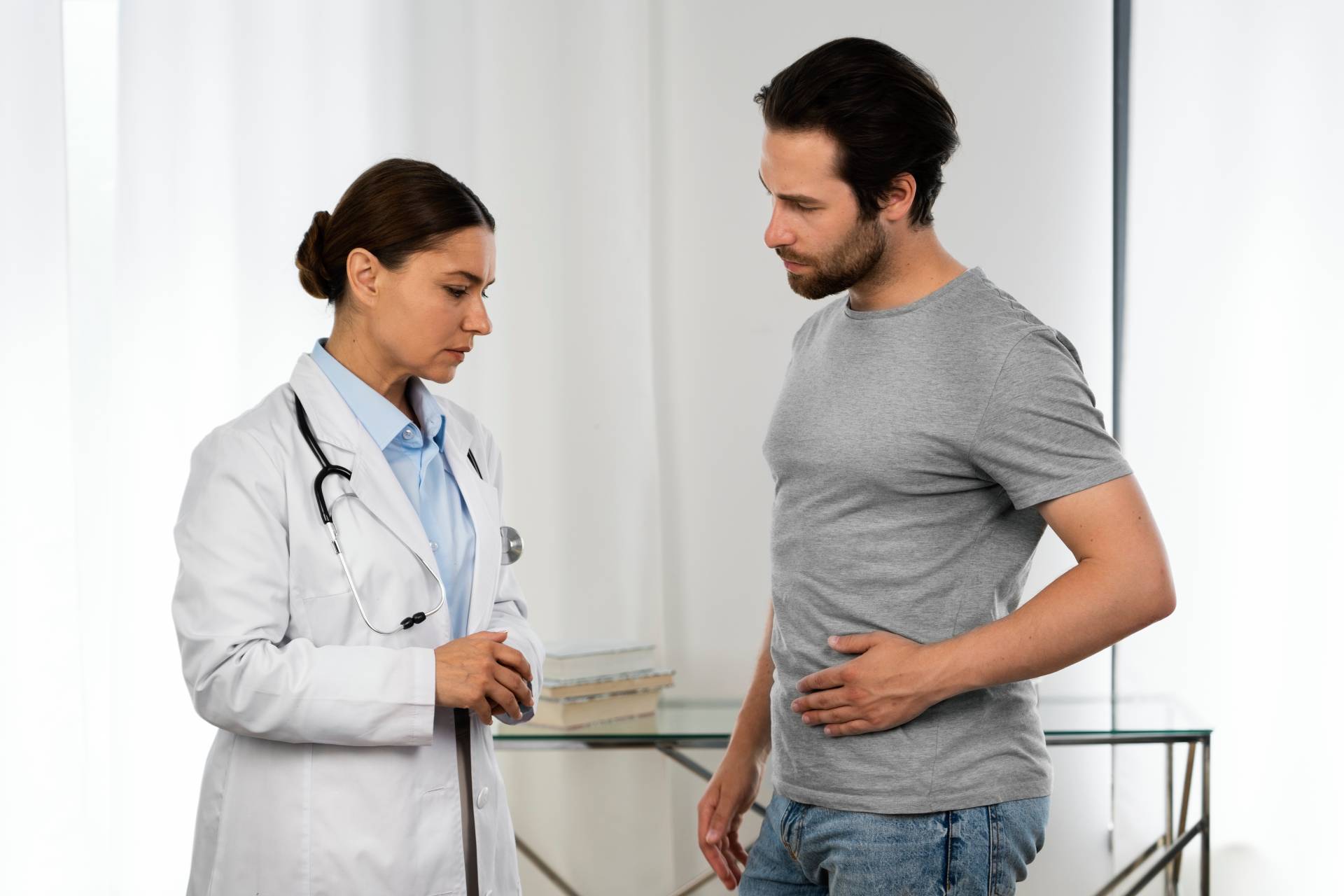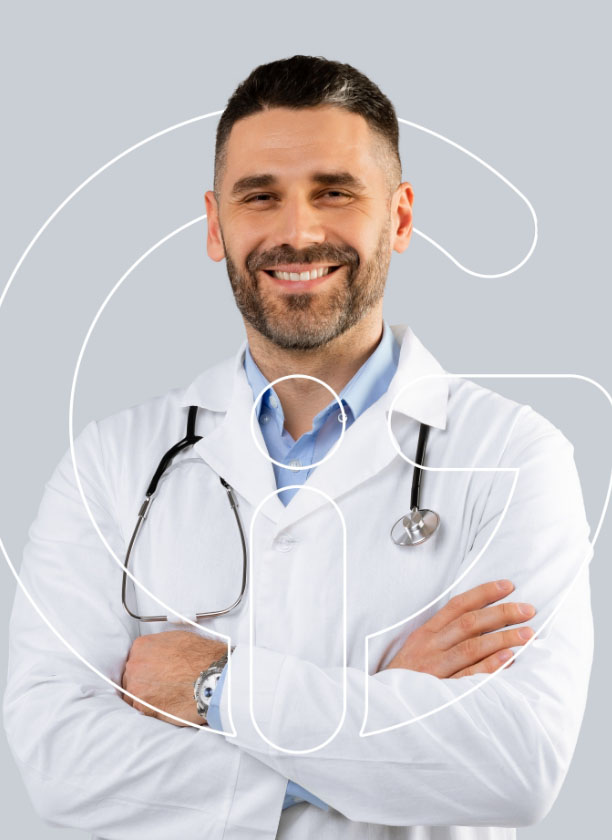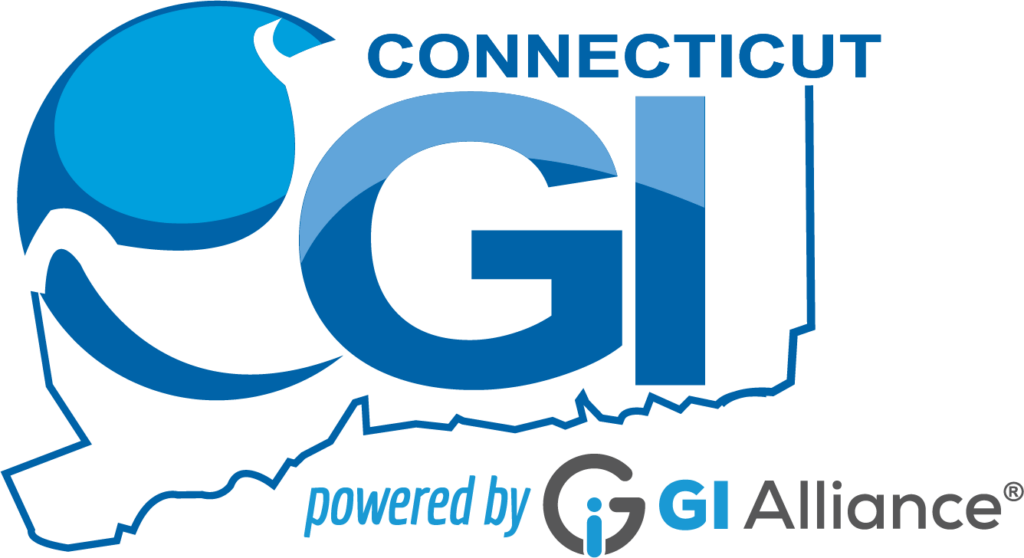Colonoscopy in Connecticut
What is a colonoscopy?
A colonoscopy is a type of endoscopic procedure where a long, flexible tube, known as a “scope,” is inserted into the rectum and carefully navigated through the entire colon (large intestine). This scope features a light and camera, allowing the physician to thoroughly inspect the colon’s lining. Colonoscopies are typically performed to diagnose gastrointestinal issues such as diarrhea, bleeding, abdominal pain, or unusual x-ray results.
For patients without symptoms, a colonoscopy is recommended starting at age 45 or earlier, depending on their medical history, to screen for colon cancer and polyps. It remains the sole preventive measure for colorectal cancer. At Connecticut GI, our board-certified gastroenterologists, who are leaders in digestive health, perform colonoscopy exams regularly. Reach out to a local Connecticut GI location to learn more.

What are the benefits of a colonoscopy?
Colonoscopy exams are the most reliable defense against colon cancer, making them crucial for individuals over 45 or those at higher risk. Following your physician’s recommendations for these screenings is essential. Regular colonoscopy screenings offer numerous benefits for both your gastrointestinal and overall health. Some of the advantages of colonoscopy exams include:
- Detect and remove abnormal growths
- Identify cases of diverticulosis, IBD, and other conditions
- Detect initial signs of colon and rectal cancer
- Serve as the most effective screening option for colon and/or rectal cancer
- Can be a life-saving exam
Thanks to the latest technology, colorectal cancer screenings are now performed faster, more comfortably, and more accurately than ever before.
What happens during a colonoscopy?
Your doctor at Connecticut GI will provide detailed instructions for bowel preparation before your exam. Most patients will need to follow a clear liquid diet the entire day before the procedure. Various laxatives are available to ensure the colon is completely cleaned out. It’s crucial to adhere to the instructions given by your doctor. You will also receive specific guidance regarding your medications. Generally, medications will continue as usual, but special instructions will be provided for patients on blood thinners (such as Coumadin, warfarin, Plavix, aspirin, and anti-inflammatories) and diabetics. Patients should not consume anything by mouth after midnight except for necessary medications.
You’ll be asked to arrive at the endoscopy center at your local Connecticut GI location 1 to 1.5 hours before your exam to complete paperwork and prepare for the procedure. You’ll change into a medical gown, and an intravenous (IV) catheter will be placed in your arm for sedation. You’ll be connected to equipment that monitors your heart rate, blood pressure, pulse, electrocardiogram, breathing, and oxygen levels during and after the exam.
In the exam room, you’ll lie on your left side on the stretcher. IV sedation will be administered in small doses to ensure safety and to meet your individual needs. Once you’re adequately sedated, the physician will perform a rectal exam before gently inserting the colonoscope into the rectum. The scope will be carefully advanced through the colon to where the small bowel and colon meet. Air will be introduced through the scope to help the physician see clearly. Any remaining fluid in the colon can be washed and suctioned out through the scope.
Depending on the exam findings, the physician can perform various procedures, such as biopsies, polyp removal, and bleeding control. At the end of the procedure, as much air and remaining fluid as possible is suctioned out of the colon. The exam typically takes 15 to 30 minutes, depending on the findings.
When will I get my colonoscopy results?
After the exam, you’ll be taken to the recovery room to be monitored as the sedation wears off. The amount of sedation used and how you respond will determine how quickly you wake up, but most patients are ready for discharge within 45 to 60 minutes.
You’ll need to arrange for a ride home since you won’t be able to drive for the rest of the day. You should also refrain from working, signing important documents, or doing strenuous activities for the remainder of the day. While most patients can eat and drink normally after discharge, you’ll receive specific instructions about activity, diet, and medications before you leave.
The doctor or nurse will discuss the procedure findings with you afterward. Because sedation can affect memory, bringing someone with you to hear the results is a good idea. You’ll also receive a typed report to take home. Biopsy results, if any, will usually be communicated within a week.
What are the alternatives to a colonoscopy?
The alternatives to a colonoscopy depend largely on the reason for needing the procedure. Generally, a colonoscopy is the most effective way to evaluate and treat abnormalities in the colon. It is also the only prevention method available for colorectal cancer. However, various x-ray options exist for evaluating the colon, such as a barium enema and a virtual CT scan. These are solely diagnostic exams, though, and any treatment of abnormalities will still require a colonoscopy or surgery.
Are there any risks with a colonoscopy?
Generally, colonoscopies are very safe procedures, with complications occurring in less than 1% of patients. Most complications are not life-threatening, but if one occurs, it may require hospitalization and surgery. Before the exam, the nursing staff will review a consent form with you. Any questions or concerns can be discussed with your physician before the procedure begins.
Reactions to the sedation medication can occur, including allergic reactions, difficulty breathing, effects on the heart and blood pressure, and irritation at the injection site.
Bleeding can happen with biopsies and polyp removal. Significant bleeding, which might require a blood transfusion or hospitalization, is very rare. However, bleeding can occur during the exam or up to two weeks afterward if a polyp is removed.
Another possible complication is colon perforation or puncture. It may be recognized during the exam or later in the day. Most cases of perforation require surgery and hospitalization, though this is an uncommon complication, even with polyp removal.
It is crucial to contact your doctor’s office immediately if you experience symptoms like worsening abdominal pain, bleeding, or fever after the procedure.
Like any test, a colonoscopy is not perfect. There is a small risk that abnormalities, including polyps and cancers, can be missed during the exam. It’s important for you to follow up with your doctor at Connecticut GI as instructed and report any new or persistent symptoms.

The gold standard for colon cancer screening
Colonoscopy FAQs
At what age is it time to schedule your colonoscopy exam?
We suggest that individuals at average odds of colon cancer begin having colon cancer screenings when they turn 45. If your risk of colon cancer is higher or you have distressing symptoms of colon cancer, you may need a colon cancer screening earlier than 45.
After 45, when is it suggested you schedule colon cancer screenings?
Doctors recommend receiving a colon cancer screening every decade for those with average risk, good health, and normal charts. After your exam, your GI doctor will let you know how often you should undergo colon cancer exams from here on out.
Is a colonoscopy a painful exam?
Sedation options are provided prior to your colonoscopy to help ensure your comfort while undergoing the screening. Depending on the medication, many patients experience an intensely relaxed state or even become sleepy, and many individuals have little-to-no recollection of the procedure. Don’t hesitate to talk with your colonoscopy doctor about what you should expect at your consult.
What’s the average recovery period for a colonoscopy?
On average, it takes around a day to recover from your colonoscopy, and most patients can return to their everyday activities the following day. It is common for you to experience a bit of abdominal irritation after a colon cancer screening, such as cramping and bloating. Our Connecticut GI providers will provide more info on what to expect during your recovery.
